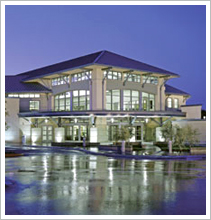 If the Internet is looking a little spotty today, that's the point. A number of websites (most notably Wikipedia, Reddit, Boing Boing, and that one featuring cute cats with bad grammar) have gone dark today in order to protest the proposed SOPA and PIPA legislation. For the music and recording industry, both bills will serve as new method of fighting online piracy. But many in the technology world see it differently. As summed up by a techie, "It was nice while it lasted, but if this passes, the Internet is pretty well over."
If the Internet is looking a little spotty today, that's the point. A number of websites (most notably Wikipedia, Reddit, Boing Boing, and that one featuring cute cats with bad grammar) have gone dark today in order to protest the proposed SOPA and PIPA legislation. For the music and recording industry, both bills will serve as new method of fighting online piracy. But many in the technology world see it differently. As summed up by a techie, "It was nice while it lasted, but if this passes, the Internet is pretty well over."Doom and gloom aside, here's what SOPA (Stop Online Piracy Act) and PIPA (Protect Intellectual Property Act) are trying to do. While the Internet is this glorious global utopia where we are all connected regardless of physical boundaries, it's also the darkest, sketchiest alley around. Lawless and anonymous, illegal trade flourishes on the Internet. Since day one, this has been a thorn in the side of people trying to protect copyrights and intellectual property.
Copyright laws only work when there is an ability to enforce them. Should someone be pirating material and distributing it online from inside the United States, there are laws that can hold that person or company accountable (think back to the Napster kerfuffle in 2000). But if the piracy is occurring outside the jurisdiction of the US, there's not much that can be done. Lawsuits and legal action fall apart if both sides aren't playing by the same rules. Should the offending party choose not to come down to your local courthouse to be punished, that's pretty much the end of it. The pirates thumb their noses and continue about their business.
SOPA and PIPA are trying to change that by going after the distribution system that allows piracy to happen. Or, as it's better known "pretty much the entire Internet." The logic is, if piracy outside the country can't be stopped, then choking the entry points will at least stop it from making profits in the United States. Those entry points are search engines (like Google), user content driven websites (like YouTube), pay sites (like PayPal), auction sites (like Ebay), web hosts and a myriad of others. These companies would be responsible for policing their sites (which may be impossible) and could be held accountable for any offending material that's found to be linked to through them.
posted by jw
The problem, as seen by those opposing the legislation, is that the law is not directed towards the producers or users of pirated material. It's aimed at the conduit which carries it from one to the other. It may not be a perfect analogy, but it's like stopping the drug trade by holding the highways personally accountable for everything that rolls across them.
The fear is that user generated content sites such as YouTube, Wikipedia, etc would not be able to meet the requirements of the bills and could shut down either from litigation costs or fear of it. There is also concern that the legislation could limit future Internet innovations. For example, had the bills been in place a decade earlier, a company like Google probably could not have come into existence. Add the specter of censorship and weakened internet security to the mix and you have a very volatile topic.
The entertainment industry and Chairman Lamar Smith of the House of Representatives Committee on the Judiciary are the main proponents going to bat for the legislation. The bills, according to their arguments, will not affect anyone doing legally allowed things. It will only target people or sites breaking the law. Moreover, it won't harm innovation, but protect it from being stolen and sold on the cheap. Despite that, in the face of pressure from constituents, a number of congressional backers have distanced themselves from the bills in the past few days.
The Internet protest ends at midnight tonight. Wikipedia and all the others will go back to business as usual. Or at least until January 24th when the PIPA bill is set to be voted upon.

